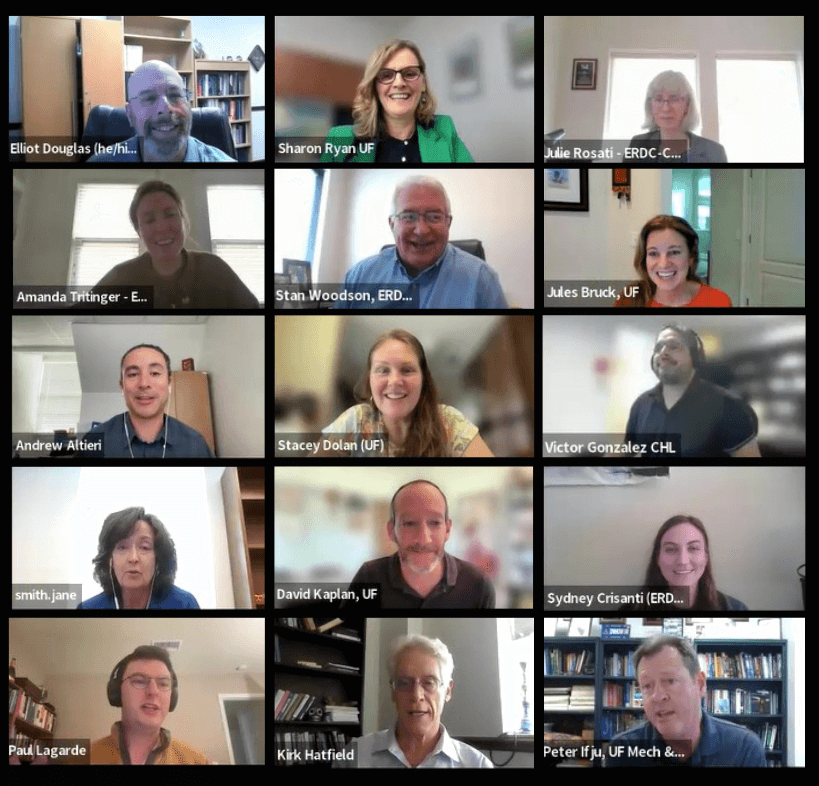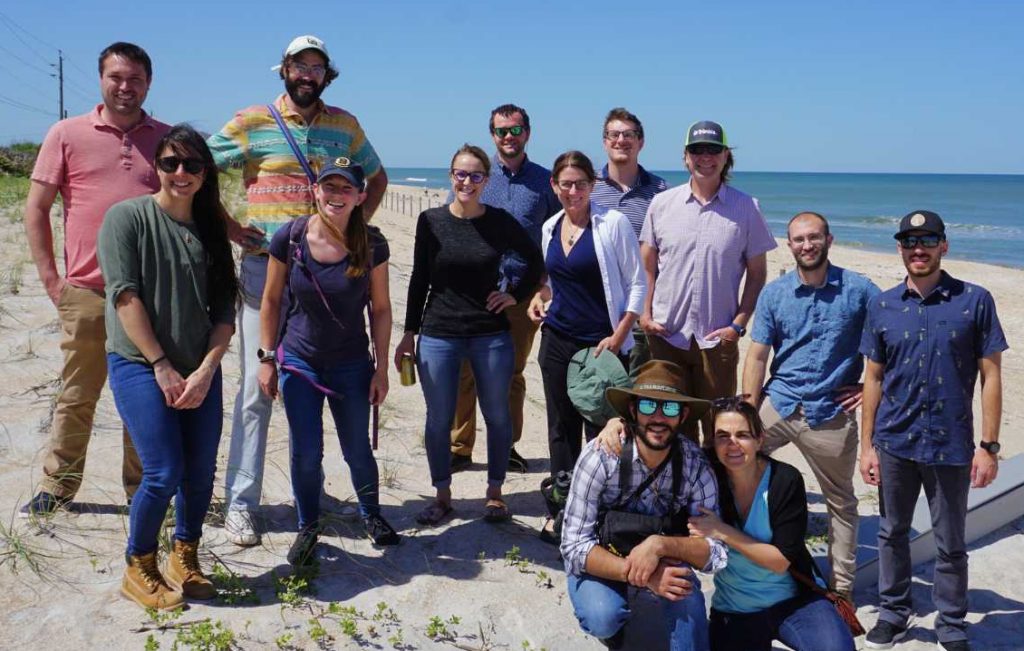By Megan Sam
Student hackathons. Joint certificate programs. Collaborative workshops and problem-solving spaces. These are just a few of the forward-thinking ideas that emerged during an energizing planning session held April 23 between the University of Florida (UF) and the U.S. Army Engineer Research and Development Center (ERDC). The session brought together scientists, engineers and leaders from both institutions to continue to build a meaningful, long-term partnership focused on innovation, education and coastal resilience.
“The goal is to develop overarching collaborations and programs that will tie ERDC and UF together,” said Andrew Altieri, Ph.D., interim director of the UF Center for Coastal Solutions (CCS). “We’re building on strong existing projects and personal relationships to create something bigger — something that’s truly greater than the sum of its parts.”
This momentum builds on the UF-ERDC Educational Partnership Agreement signed in December 2023. The agreement opens the door for a two-way exchange of people, ideas, expertise and materials that will give UF students and faculty opportunities to team up with federal researchers and technical experts to take on real-world environmental challenges.

Facilitated by Sharon Ryan, CCS associate director of strategy and communications, the workshop sparked ideas for initiatives to roll out over the next three and a half years. Participants explored everything from new curriculum pathways and joint research projects to professional development programs designed to benefit students, faculty and ERDC professionals alike. One standout idea: building academic pipelines that connect UF students to ERDC personnel through senior capstone design projects and real-world technical challenges.
“From a workforce development standpoint, challenges like capstone senior designs are a very efficient method for building a pipeline of UF students going to ERDC,” said Peter Ifju, Ph.D., professor of mechanical and aerospace engineering and affiliate faculty member of CCS.

The session wrapped up with a strong sense of shared purpose and momentum for what’s ahead.
“The work we’ve done together so far has been great,” said Stan Woodson, Ph.D., director of the ERDC Graduate Institute. “UF’s early planning and commitment are impressive. I think it means there’s going to be a lot of potential successes.”
Amanda Tritinger, Ph.D., deputy program manager for Engineering with Nature and a research hydraulics engineer at the Coastal and Hydraulics Laboratory of the U.S. Army Corps of Engineers emphasized the value of the collaboration itself. “I appreciate the active engagement from all participants. The group was really effective in communicating thoughtful, actionable ideas. It’s been truly inspiring.”
Up next: the group will start putting ideas into action, with UF faculty and students headed to ERDC in July, to focus on a few early wins that can build momentum and keep the energy going.
